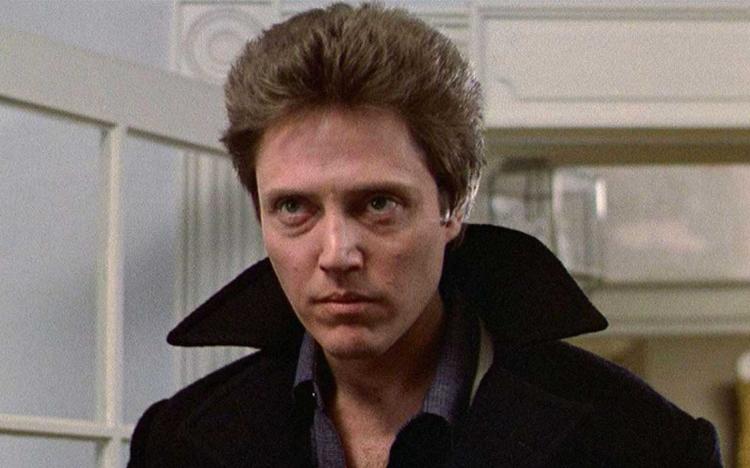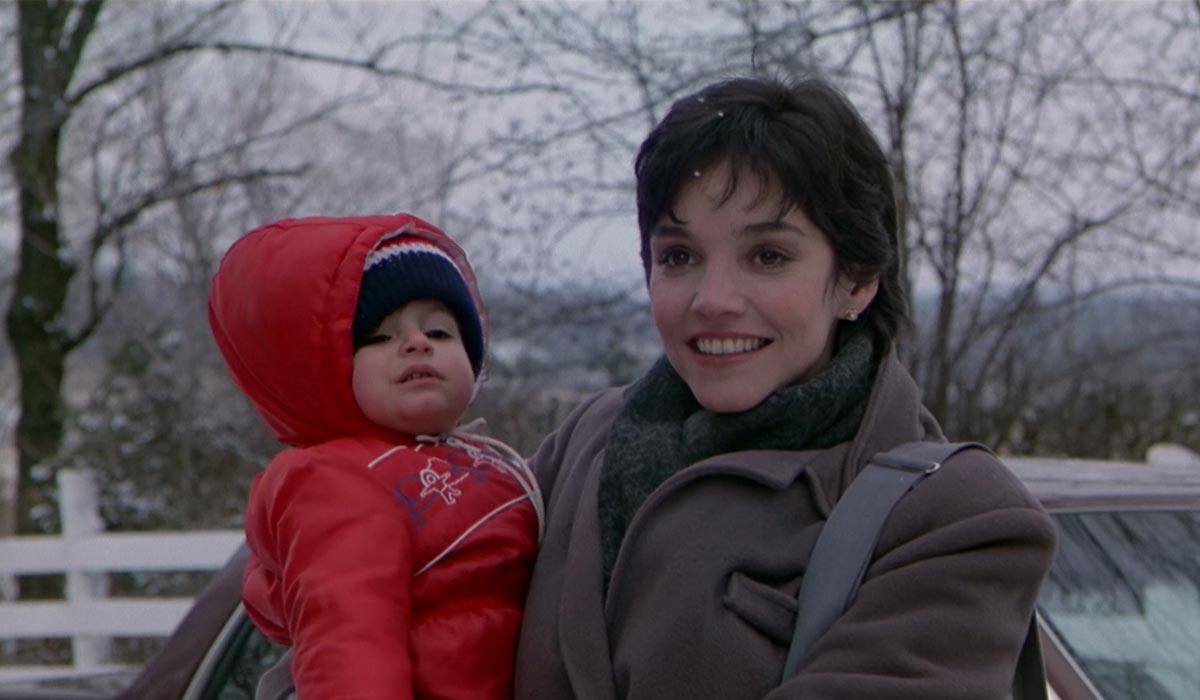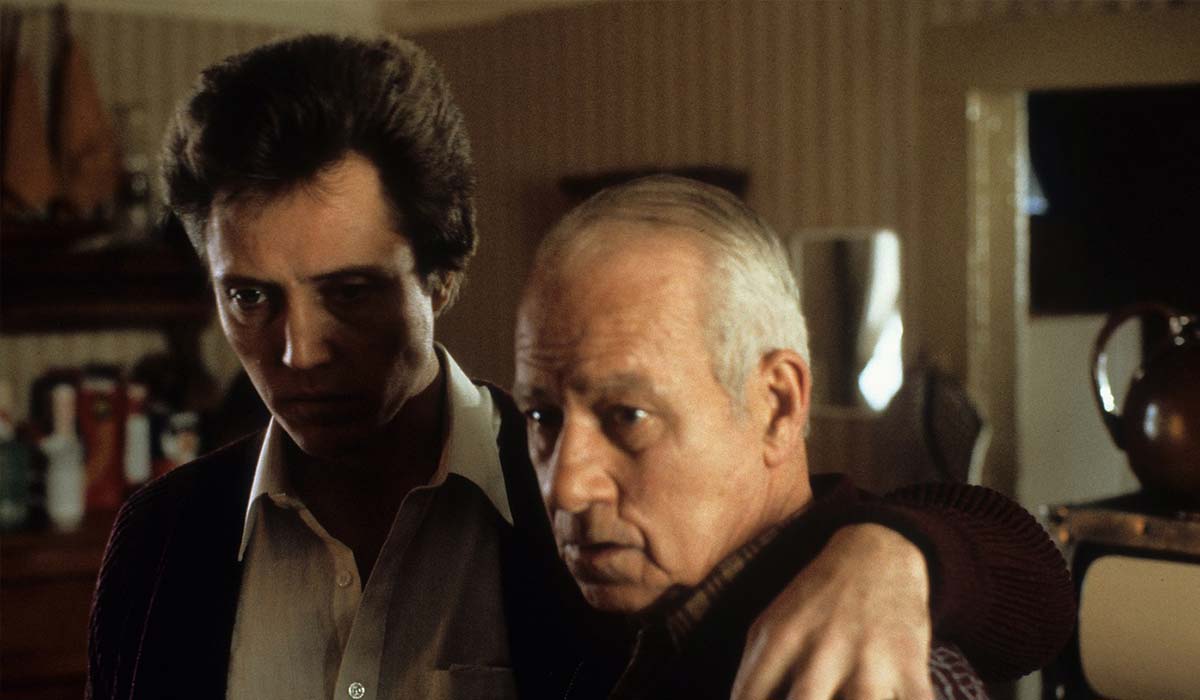THE DEAD ZONE Was An Anomaly, But A Good One Brian Collins August 5, 2021 - 8:50am One of the many things I learned thanks to the two historian commentary tracks on Scream Factory's blu-ray of THE DEAD ZONE is that the 1979 novel was Stephen King's first one to hit the New York Times Bestseller list. Since the book followed the likes of THE SHINING and THE STAND, I was surprised and even kind of charmed to see that DEAD ZONE was the one to break that barrier for the author, as it is barely a horror story and - forty years and over fifty books later - remains one of his more atypical selections. It's a terrific book, but if a King virgin were to ask for a good place to start their journey to becoming a Constant Reader, it would not be the first to come to my mind if they wanted to get a sense for what a "traditional" read from the author would be. So I guess it's fitting that the obligatory adaptation was also a bit of an anomaly for its marquee names, specifically director David Cronenberg and star Christopher Walken. While the actor was not yet the meme-worthy scenery chewer we now think of him as, he was still a bit of an odd character actor at that time, having already played a few "crazy" types in various genres (the comedy ANNIE HALL, for example), and so he was not the first person one would think of to play an everyman, one literally named John(ny) Smith to emphasize his anonymous nature. As for Cronenberg, it's an even more unusual choice, as not only was he racking up a number of "body horror" films by that point, but he also had written or co-written them all himself so far, making this his first feature in which he did not have a writing credit. In fact it marked a huge shift in the filmmaker's output, as nearly everything he has done since has been some form of adaptation. As with King, he eventually started expanding his horizons beyond the horror genre more often than not (the author has a new horror-free novel out this week in fact), but given both mens' names near synonymy with the genre, it's interesting that their lone collaboration was so horror lite when you consider the time it was made. Nowadays, no one would probably bat an eye at a King/Cronenberg film being fairly mild when it came to the scary stuff, but in 1983, someone walking in based on the names and knowing nothing else might be taken aback; it's only really counted as a "horror" film because of the names attached. Don't get me wrong, it's a fairly faithful adaptation when it comes to the bullet points of the novel - this isn't some LAWNMOWER MAN (or even SHINING) level diversion. But it was a long-ish book, and a movie wouldn't have time for everything, so Cronenberg and screenwriter Jeffrey Boam streamlined some of its plot and kept focus on Johnny instead of continually tracking Stillson and (to a lesser extent) the Castle Rock Killer, more or less only roping them into the story when Johnny crosses their path (Martin Sheen, as Stillson, doesn't even appear until over an hour into the film, whereas the book actually introduces him before we even meet the adult Johnny). However, while some book fans may argue otherwise, this focus allowed the movie to be more heartbreaking than the novel. Without cutting to Stillson as often, and reducing the Castle Rock Killer stuff to about 15 minutes' worth of the runtime, the movie is less about a man with psychic visions trying to save the world and more about a man who saw his life stolen away from him in an instant and how he tries to cling to some sense of normalcy with the time he has left. Interestingly, Cronenberg also removed the novel's explanation of a brain tumor that obscured some of Johnny's visions, which makes his sacrifice more tragic in my eyes. In the novel he was going to die anyway, but here in the film one can imagine he could have lived a long life, albeit alone, but opted to assassinate Stillson to make sure the people he loved (namely, Sarah, his girlfriend that started a family while he was in his coma) would get to keep living the life he was denied. It's a heartbreaking conclusion, one I think would not register as well had Cronenberg dove into the pulpier and "genre friendly" elements of the story along the way, or even the brain tumor that had him choosing one way of dying over another. Yes, *David Cronenberg* removed a subplot about someone's body turning against them! This movie is so off-brand! It's also a warm film, and I don't mean the climate. As always, Cronenberg shot it in snowy Canada, but the humanity in the film, not just from Johnny but also Brooke Adams' Sarah, Sean Sullivan as Johnny's Dad, and Herbert Lom as Dr. Weizak (you know you're in strange territory for a Cronenberg film when a guy who runs an institute is a sympathetic ally); you get the impression any one of them would have taken that bullet for Johnny if they were given the chance. There's a scene about halfway through that breaks my heart, when Sarah stops over at Johnny's and finally consummates their relationship (which was to happen the night of his accident had he not gotten sick) as a means of closure. Afterward, he's playing with her son while his dad is chatting with Sarah, and one were to watch this scene out of context you'd never know it's not an actual family. But that's not his son. Sarah isn't talking to her actual father in law. And Johnny will never be able to have that kind of normalcy again. It's shattering. The film performed well enough at the box office to be considered a hit, keeping Cronenberg in Hollywood's graces for a while (his next film was THE FLY) and proving that King's less horrific fare could draw an audience as well; in fact, STAND BY ME hit theaters exactly one week after THE FLY and was, at that time, the highest grossing film based on his work to date. Walken rarely took heroic lead roles in mainstream films after this, falling back on his bread and butter of villains and supporting roles (his next appearance was as the villain in the Bond film A VIEW TO A KILL), though he did spoof Johnny on SNL a decade later, a testament to the film's lasting presence. It's remained an easy choice when the subject of "Best King Adaptations" comes up, though I feel it's in the running for "top five" status for Cronenberg and Walken as well, even if it's gonna stick out among the others. THE DEAD ZONE might not be the movie anyone would expect if they saw the names on the poster and knew nothing else, but I've rarely encountered anyone who walked away disappointed. Good is good, no matter how different it might be from the norm. |


